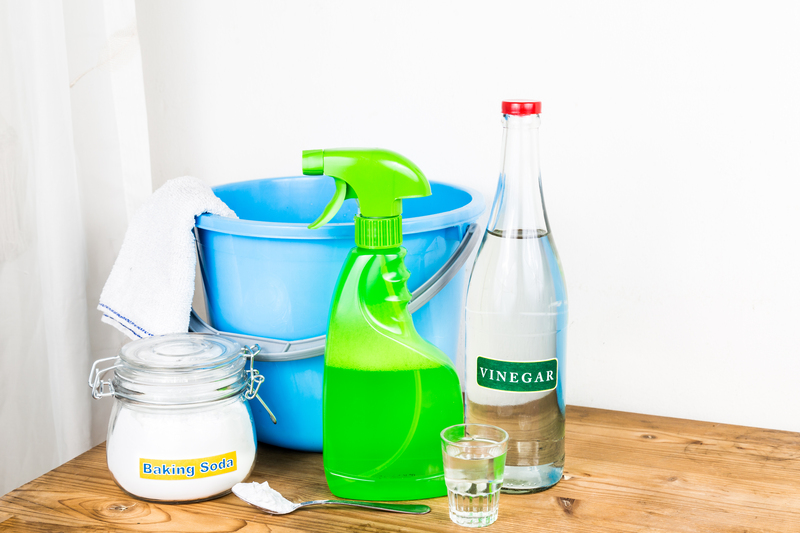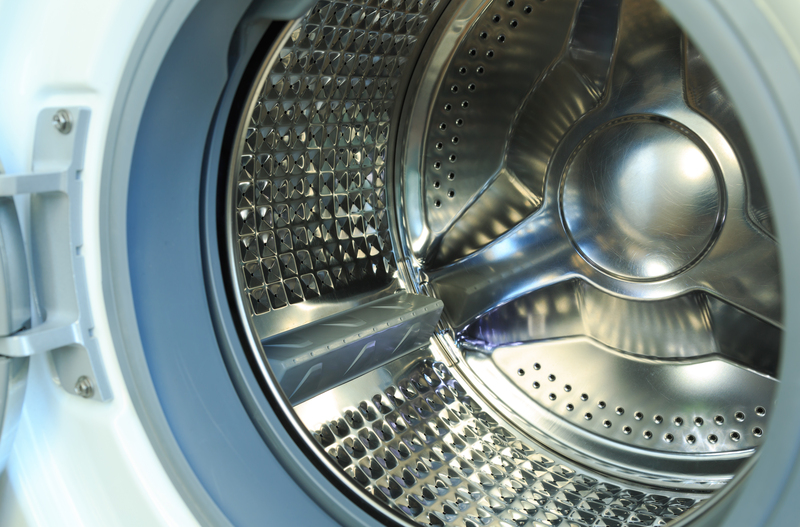Business Success Starts with Premium Air Quality Standards
Posted on 09/06/2025
Business Success Starts with Premium Air Quality Standards
When organizations strive for operational excellence and empowered teams, one essential factor often overlooked is the quality of air within workspaces. Emphasizing premium air quality standards not only spearheads better health but also propels long-term business success. Join us in unveiling the profound link between air quality, productivity, and growth opportunities for forward-thinking companies.

Understanding the Importance of Air Quality in Business
Indoor air quality (IAQ) encompasses the cleanliness, freshness, and overall purity of the air inside a building. While most office environments may appear clean on the surface, hidden pollutants and allergens frequently lurk in the air, silently impacting employee well-being and performance. Establishing premium indoor air quality standards can:
- Reduce employee absenteeism and sick days
- Improve concentration and mental clarity
- Enhance energy efficiency in buildings
- Contribute to a positive, healthy work culture
Modern businesses that invest in and prioritize high-quality air standards often reap substantial competitive advantages.
What Are Premium Air Quality Standards?
Premium air quality standards refer to rigorous benchmarks for cleanliness, pollutant control, ventilation, and monitoring within workplace environments. These standards often exceed baseline regulatory requirements, representing a proactive, evidence-based approach to corporate health and productivity.
- Ventilation: Fresh outdoor air is consistently circulated and filtered to reduce contaminants.
- Filtration: Advanced air purification systems (like HEPA filters) are employed to trap micro-particles and pathogens.
- Monitoring: Real-time sensors track air quality metrics like CO2 levels, humidity, particulate matter, and VOCs (volatile organic compounds).
- Maintenance: HVAC (heating, ventilation, and air conditioning) systems are regularly checked and cleaned to maintain optimal performance.
Why Businesses Need Premium Air Quality
Consider the following reasons why business success starts with premium air quality standards:
1. Enhanced Workplace Productivity
Multiple studies confirm a direct correlation between high indoor air quality and improved cognitive function. Clear, pollutant-free air helps employees stay focused, make better decisions, and maintain higher energy levels throughout the day. According to a well-known Harvard study, workers in environments with superior air quality scored 61% higher on cognitive tasks than those in conventional offices.
2. Reduced Illness and Absenteeism
Workplaces with premium clean air standards dramatically reduce the spread of airborne pathogens, allergens, and viruses. This translates to fewer cases of respiratory illnesses, fewer headaches, and less fatigue among staff. In turn, companies can expect reduced absenteeism and the associated financial losses.
3. Employee Retention and Satisfaction
Today's job candidates are increasingly aware of the significance of wellness-oriented work environments. By adopting superior air quality controls, businesses signal a commitment to team member health and foster an attractive, modern workplace. This strengthens loyalty and improves talent retention across all levels.
4. Corporate Reputation and ESG Leadership
Clients, partners, and investors pay close attention to a company's corporate social responsibility. By upholding exceptional air quality standards, organizations not only protect their staff but also underscore their Environmental, Social, and Governance (ESG) commitments.
5. Regulatory Compliance and Future-Proofing
Air quality regulations are tightening globally in response to public health initiatives and environmental concerns. Adopting advanced air quality protocols now places businesses ahead of the curve and ensures future compliance with local, national, and even international laws.
The Economics of Air Quality Management
Is premium air quality a cost or an investment? Evidence shows the latter. Here's a broad breakdown of the return on investment:
- Lower operating costs: Energy-efficient air systems reduce utility expenses.
- Higher productivity: Even small improvements in output or reductions in absenteeism yield substantial gains.
- Fewer health claims: Healthier teams mean reduced insurance and healthcare expenditures.
- Increased property value: Enhanced indoor environments boost real estate values and tenant satisfaction.
With a strategic approach, implementing high-end air quality standards delivers measurable, ongoing value that far outweighs initial set-up expenditures.
Implementing Premium Air Quality Standards: Essential Steps
Embracing premium air quality standards in business is achievable through a blend of modern technologies, best practices, and organizational commitment. Here's how top companies make the transition:
Step 1: Assess Current Air Quality
Begin with a thorough indoor air quality (IAQ) assessment. Employ specialists to measure:
- Carbon dioxide (CO2) levels
- Particulate matter (PM2.5 / PM10)
- Humidity and temperature
- Presence of VOCs and other contaminants
Armed with baseline data, organizations can identify improvement areas and set measurable targets.
Step 2: Upgrade Ventilation and Filtration Systems
One of the most impactful upgrades is UV-C air purification or HEPA filtration. Newer HVAC systems offer variable airflow, automation, humidity control, and smart diagnostics--ensuring precise air quality standards are maintained year-round.
Step 3: Automate Air Quality Monitoring
Install real-time air quality sensors across multiple zones in your office or facility. These can be integrated with a central dashboard for continuous tracking, alerts, and immediate response to any detected issues.
Step 4: Regular Maintenance & Employee Training
- Establish consistent filter replacement schedules and duct cleaning.
- Educate employees about the importance of maintaining a clean air environment--such as reducing clutter, managing waste, and reporting ventilation issues.
Step 5: Transparent Communication
Share air quality metrics, successes, and ongoing plans with both staff and stakeholders. Transparency fosters trust and involvement.
Innovative Technologies Elevating Air Quality in Business
From AI-driven purification to green-certified materials, innovative solutions continue to redefine what "premium" means in workplace air quality. Consider integrating:
- Bi-polar ionization systems to neutralize airborne bacteria and viruses.
- Smart humidifiers and dehumidifiers to keep humidity in the ideal range (40%-60%).
- Eco-friendly furniture and finishes that emit zero or low VOCs.
- Green plant installations that naturally improve air purity and employee well-being.
- Mobile apps for instant IAQ feedback and tips for employees.
Case Studies: Businesses That Excelled With Superior Air Quality
- Global Tech Firm:
By investing in smart air filtration, a Fortune 100 company reported a 30% decrease in staff sick days and a 12% increase in self-reported employee satisfaction. - Financial Institution:
Real-time monitoring allowed rapid response to air quality issues, leading to a boost in cognitive performance during high-stakes negotiations and fewer reported allergies. - Co-working Space Chain:
Premium air standards became a unique selling point, attracting startups who valued a health-conscious environment and leading to high occupancy rates year-round.
FAQs: Premium Air Quality Standards for Business
- How often should filters be replaced in commercial buildings?
Most experts recommend HEPA filters be changed every 3-6 months, but frequency varies based on use and local pollution levels. - Is premium air quality only relevant to offices?
No. Retail, hospitality, healthcare, education, and manufacturing all benefit from superior air standards and related business outcomes. - Can good air quality improve customer experiences?
Absolutely. Customers are more likely to enjoy, remember, and return to businesses where the air feels clean and fresh.

Building a Business Case for Premium Air Quality Investment
In a rapidly evolving world, businesses that prioritize the well-being and productivity of their teams lead the pack. Premium air quality represents more than compliance; it's a strategic lever for growth and competitive differentiation. By embedding high-quality air standards as a core part of your organizational culture, you:
- Attract and retain top talent
- Amplify brand reputation
- Boost operational efficiency
- Strengthen stakeholder and investor confidence
Investing in better air isn't just an operational upgrade--it's a visible, tangible commitment to your people and your brand's future.
The Future of Premium Air Quality Standards in Business Environments
As hybrid and remote work models evolve, workplaces with advanced, visible air quality features will set the standard for in-person collaboration spaces. Forward-thinking organizations are leveraging these investments to:
- Support employees' safe return to office environments post-pandemic
- Ensure resilience against future health crises
- Align with international sustainability and health goals
- Foster cultures of innovation and trust
Conclusion: Make Air Quality Your Next Strategic Priority
Business success starts with premium air quality standards--delivering real, measurable benefits for your people, productivity, and performance. As expectations rise, organizations embracing superior air quality not only do right by their employees and customers, but also position themselves as leaders in a more conscious, competitive marketplace.
Ready to evaluate your company's air quality? Make the commitment to premium indoor air standards and put your business on a path to stronger growth, greater resilience, and lasting success.
Invest in premium air. Invest in your business future.




